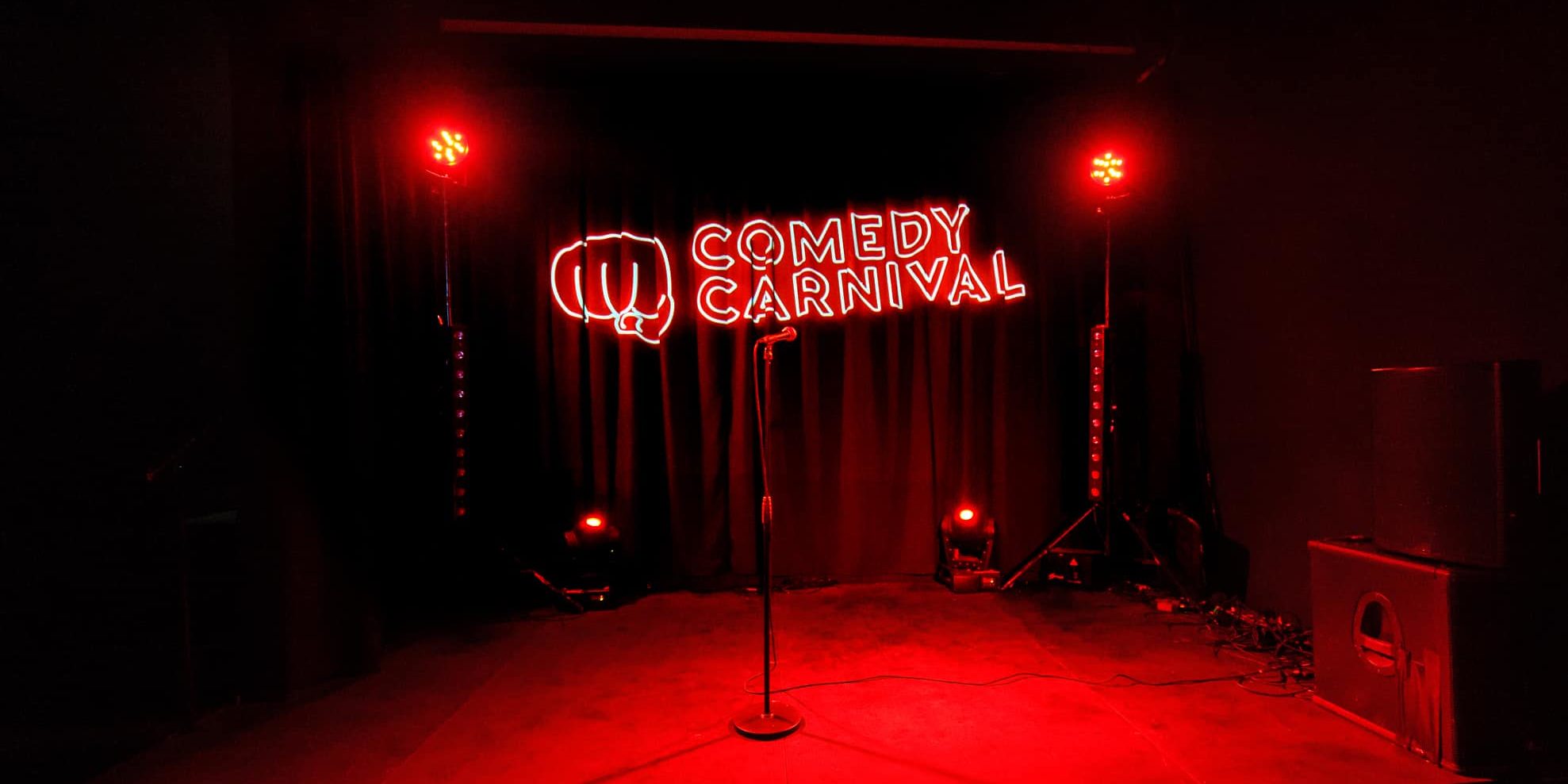Brits and Americans share a lot of things; we watch the same TV shows, eat similar food, and of course, share a native language. One that we don’t share, however, is our style of stand-up comedy. While the core purpose of stand-up comedy remains the same – in short, to make the audience laugh – the approaches taken by British and American comedians vary significantly, with neither being better nor inferior than the other.
In the following blog, we’re going to examine some key differences between both American and British stand-up, taking a look at some of our favourite home-grown comics, as well as those from across the pond. Let’s take a look!
Storytelling vs. One-Liners
British stand-up comedy often revolves around storytelling, as comedians like Eddie Izzard and Billy Connolly masterfully weave anecdotes and observations to create an engaging and cohesive performance. This approach allows for a more relaxed pace and fosters a deeper connection with the audience, inviting them into the comedian’s world.
Conversely, American comedians such as Bo Burnham and Bill Burr tend to favour one-liners and shorter jokes, delivering quick-witted punchlines that keep the energy high. While exceptions to these generalisations exist, storytelling will tend to feature more at a comedy club in London than a New York one.
Self-Deprecation vs. Confidence
British humour is renowned for being often irritatingly self-deprecating, and this trait is evident in stand-up comedy as well. UK Comedians like Jack Dee, Sarah Milican and Jo Brand frequently make light of their own flaws and misfortunes, fostering a sense of humility and relatability with the audience.
In contrast, American comedians like Chris Rock and Kevin Hart often exude confidence on stage, projecting an assertive presence and delivering their jokes with conviction. While self-deprecation may still feature in their routines, the overall demeanour of American comedians is generally more bold and self-assured, and American comedians do tend to enjoy slightly more of a “rockstar” identity than their British counterparts.
Irony and sarcasm
British comedians are known for their use of irony and sarcasm, and this is evident in the works of performers like Jimmy Carr and Ricky Gervais. Their dry wit and subtle humour rely on the audience’s ability to recognise the underlying meaning, creating a shared understanding between performer and spectator.
One of the easiest ways to distinguish American humour from British humour is to consider the differences between American adaptations of British comedy classics and their originals. For example, Ricky Gervais’ original “The Office” (2001-2003) relied on pitiful characters who solicited both laughs as well as sympathy from the audience; the US version featured generally more likeable characters for whom the audience rooted emotionally. In addition to this, the storylines in the US office were often more farcical than that of its original; British comedy – both onscreen and onstage – often finds humour in the everyday banalities of life.
Topical vs. Personal humour
British stand-up comedy often delves into topical issues, with comedians like Frankie Boyle and Russell Howard providing commentary on politics, current events, and social issues. This focus on current affairs lends a sense of relevance and thoughtfulness to British comedy, encouraging audiences to view societal issues from a different angle.
In comparison, American comedians like Louis C.K. and Amy Schumer often draw from personal experiences, relationships, and everyday observations. By focusing on relatable, everyday situations, these comedians enable their audiences to connect with them on a personal level, finding humour in the common human experience.
Tone and pacing
The tone and pacing of British and American stand-up comedy differ significantly. British comedians, such as Michael McIntyre and Victoria Wood, often adopt a more subdued, conversational style, allowing for a steady rhythm that builds tension and anticipation. This measured approach lends itself to the development of complex and layered jokes, offering a satisfying payoff for the audience.
In contrast, American comedians like Robin Williams and Eddie Murphy deliver their routines with energy and dynamism, engaging the audience with a constant stream of jokes and punchlines. This lively style creates an atmosphere of spontaneity that keeps the audience on their toes and guessing what comes next.
Dominant Americanism
Finally, it’s worth mentioning that one thing British and American comedians share is a mutual delight in offering commentary on British affairs.
After all, it’s only natural that comedians incorporate cultural references unique to their respective countries in their performances, but only British comedians comment on American affairs. While anything can happen in comedy, it’s highly unlikely that we’re going to see Dave Chappelle or Chris Rock performing stand-up routines about the Conservative party conference, or offering lucid reflections on the British cost of living crisis.
On the other hand, British comedians often indulge in American political commentary, whether it be discussing hot topics (such as gun laws or other social issues) or making fun of the latest US president. Perhaps we’ll see Kevin Hart on his next UK tour discussing the 2024 general election? Anything can happen!



